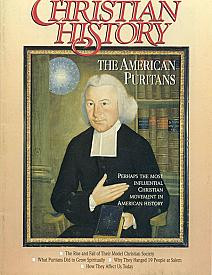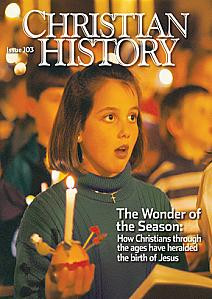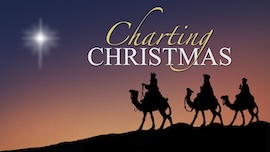Puritans Attempted to Abolish Christmas
PURITANS gave the church many profound writings and called believers to holiness. However, Christmas was not a hit with Puritans on either side of the Atlantic. Their objections were religious. Not only were there no grounds for believing Christ was born on December 25th, they said, but the Bible had also not established the practice. Further, they objected that for many people Christmas observance was a sacrilege—a time of heavy drinking and pagan customs.
On Christmas day, 25 December 1621, William Bradford called the colonists of Plymouth Plantation to work. Some new arrivals said it went against their consciences to work on the day, so he said he would spare them until they were better informed. When the workers returned at noon, they found the newcomers bowling and tossing the bar.* Bradford confiscated their playthings and told them that it was against his conscience that they should play while others worked. If they made keeping Christmas a matter of devotion, let them stay in their houses, but there would be no games.
After the Puritans came to power in England, they began issuing laws against Christmas beginning in 1642. In 1647, Parliament passed a law that the feast of the Nativity of Christ should be no longer observed. Some English folk protested through pamphlets, others by holding celebrations in defiance of the law, still others by refusing to open their shops. At Oxford, Ipswich, and Canterbury, people rioted. A mob beat the Mayor of Canterbury senseless, breaking his windows as well as his bones. Thousands vowed that if they could not have Christmas, they would bring the king back to his throne.
Five years later, Parliament was still issuing unpopular rules. One dated Christmas Eve, 1652, directed, “That no observation shall be had of the five and twentieth day of December, commonly called Christmas Day; nor any solemnity used or exercised in churches upon that day in respect thereof.”
On Christmas Day 1657, John Evelyn defied the law and attended a Christmas sermon at Exeter Chapel in London. Soldiers arrested everyone, including him. He was questioned why he disobeyed the law but was not taken to prison as some were, “so I got home late the next day, blessed be God!” he wrote.
Across the Atlantic on this day, 25 December 1659, the Massachusetts General Court banned the observance of Christmas under penalty of stiff fines. The law stood for over twenty years.
—Dan Graves
----------
*Tossing the bar—a sport similar to shot-put in which contestants vied to cast a heavy iron bar the farthest distance.
For more about American Puritans, see Christian History #41, The American Puritans;
For more background on the development and observation of Christmas, read Christian History #103, The Wonder of the Season
for more about the origins of Christmas, watch Charting Christmas at RedeemTV
Charting Christmas can be purchased at Vision Video.








